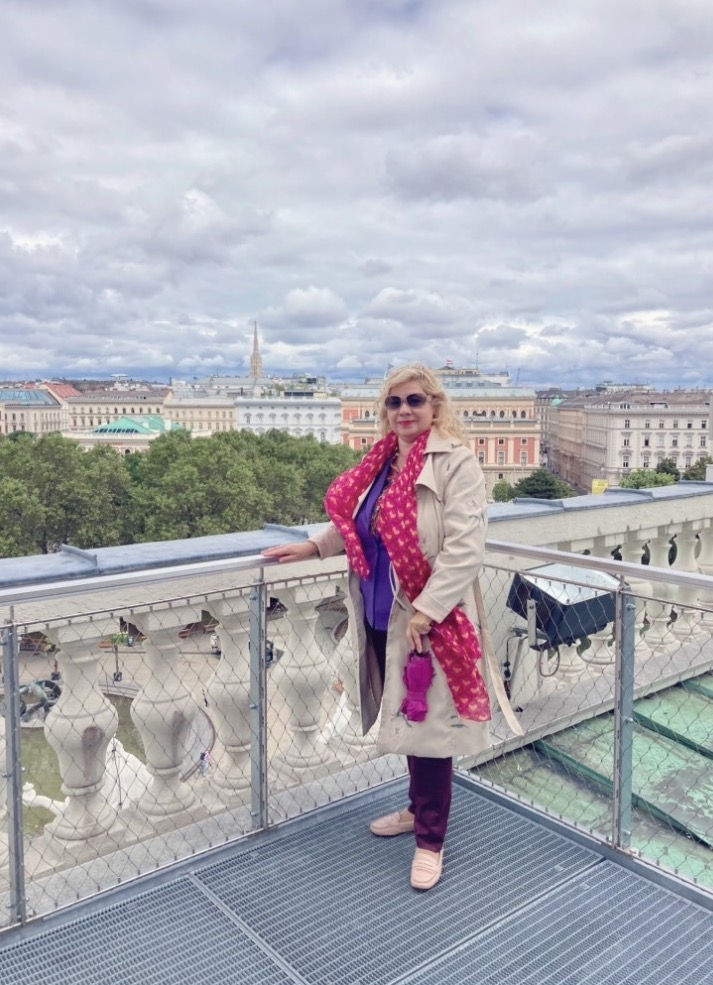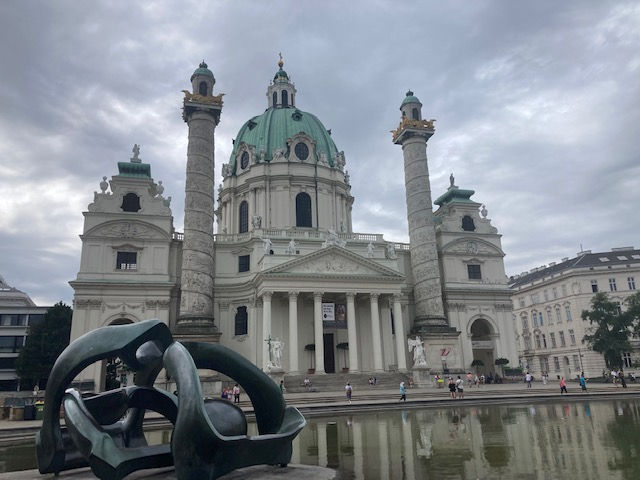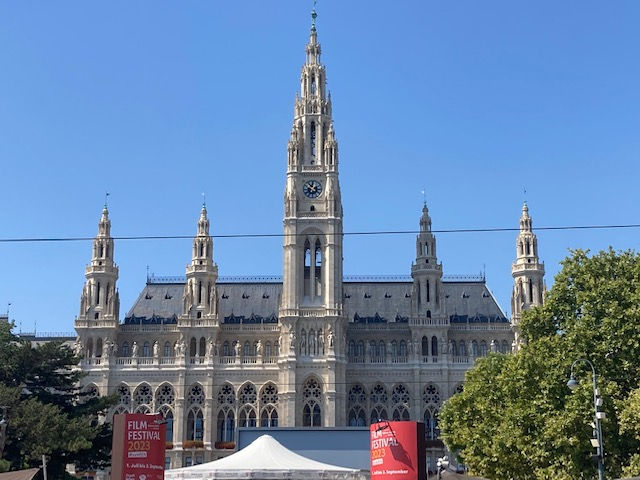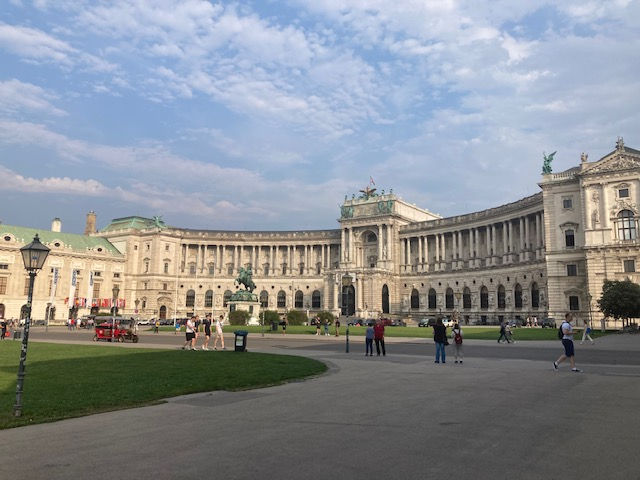Encounters with Freud and Frankl in Vienna
- valvenpsy
- Jan 10, 2024
- 4 min read
Updated: Jan 13, 2024
Written by: Valérie A.G. Ventureyra, PhD
Introduction
I was very fortunate to have spent the month of August 2023 in Vienna, Austria. Vienna the Imperial City. Vienna, “city of musicians”, as it was called in the fabulous, and possibly best movie ever made (winner of 43 Oscars), “Amadeus", and home, by birth or by choice, of many 18th and 19th century illustrious classical musicians, among which figure Wolfgang Amadeus Mozart, Joseph Haydn, Franz Schubert, Ludwig van Beethoven and Johann Strauss, to name a few. However, let us not forget that Vienna is also the birthplace of psychoanalysis, and the precursor of psychotherapy, a fact that may not immediately come to mind to most, unless one has a connection, professional or otherwise, to either or both, of these fields. For the psychologist and psychotherapist that I am, I could not have spent a month in the Imperial City without paying a visit to two of the most influential forefathers of psychotherapy, regardless of my own psychotherapeutic orientation, Cognitive-Behavioural Therapy, diametrically opposed to Freudian analysis (a fact which I even tend to highlight in my first time encounters with many of my patients, notably the French ones, who often equate psychology/ psychotherapy with psychoanalysis, for lack of knowledge and the longtime preponderance of the latter in France).
Before presenting these unique encounters, I would like to give some background regarding my stay in Vienna. The capital of Austria, and former imperial capital of the vast and culturally diverse Austro-Hungarian Empire, had fascinated me for a long while. I had already visited twice, the first time with my family as a teen in the context of a vacation in Austria and the Czech Republic, and the second in 2012, for my birthday. It was during the latter trip, when I really, carefully chose the monuments, sites and museums to visit with full agency and intent, while enjoying wonderful sunny, early Autumn weather, which allowed me to see the city in a different light, quite literally, from the first rainy visit with family. The harmonious baroque and imperial architecture of the city, stemming from the reigns of Empress Maria Theresa and her son, Emperor Joseph II, appeared to me in its full splendour, and I discovered the fascinating cultural mix between the Germanic and the Slavic, interwoven with Hungarian, Rumanian and even Turkish influence, apparent in its inhabitants, cuisine and customs. And it was during this trip that I resolved to one day spend a more significant amount of time in the mosaic city of Central Europe.
The pretext to this sojourn was to relearn German, a long-lost language for me. (Well, perhaps not as long-lost as the mother tongue of my dissertation thesis subjects, international Korean adoptees, who had left their homeland at a very early age, with virtually no further exposure to Korean over decades!) I actually learned German in high school, partly by choice (as Falco, another Austrian superstar musician, was fashionable in the day and I wanted to understand the lyrics to his songs), and partly by default, as the other electives were Spanish, which I already spoke fluently, and Latin, which was my initial choice, but because my classmates at my new school had started learning it two years earlier, I could not take the course with them. So German it was for a few years, and I enjoyed learning the grammatically complex, yet attractive language, while discovering the cultural heritage and traditions of German-speaking areas. However, I did not enjoy it as much as French, a language that has had great significance in my life and shaped my destiny. I recall that my German teacher encouraged me to participate in an exchange programme to Germany, as my best friend had done at the time, but I was not attracted enough to Germany, and so preferred to spend my Summers in Switzerland perfecting my French instead. Today, I wonder if my teacher had encouraged me to go on an exchange program in Austria, and Vienna in particular, if I would have done so. Austria was not an option, unfortunately, and neither was Switzerland, for language-learning exchange programmes, as the German spoken in these countries, and particularly the latter, is considered dialectical and “impure”, and not comparable to the Hoch Deutsch (high German), which is valued in academic settings. (I consider this to be snobbery and am particularly sensitive to these linguistic debates. The same controversy exists with many languages, notably those brought to the Americas by Europeans: English, Spanish, Portuguese and French. Being Canadian and having grown up next to and having lived in Quebec, I am always appalled by some European francophones’ dismissal of French-Canadian French, which semantically is identical to the European variety. The lexicon and accents, of course differ, but this is only the beauty of language diversity as language evolves across centuries and geographical space.
Last August, then, and despite the dialectical differences of Viennese German, I took the leap to spend a month in Vienna and took an intensive three-hour per day German class, at a school that was very conveniently located in the heart of the Austrian capital, close to the Opera. (My newly found professional freedom, paradoxically stemming from freedom-restricting Covid era, which paved the way to my becoming a Digital Nomad, practicing my profession online exclusively, while occasionally spending time outside of Paris, certainly facilitated this leap toward what had seemed like a mere whimsical and unlikely dream.) I kept up my practice, seeing patients before and after my afternoon class, and naturally, made the most of my free time to visit the city and to go on a few excursions nearby.
In my last few days in Vienna, once the class had finished and I had taken some time off from my practice, I dedicated more time to encountering, and walking in the footsteps of two of the most influencial psychotherapists of the 20th century, the father of psychanalysis, Sigmund Freud, and the pioneer of existential/ logotherapy, Viktor Frankl, who had once been a disciple of the former. Although the theories and practices of these two psychiatrists diverge from those that I have chosen to adopt, a visit to their places of residence (now museums) and walks in their footsteps in the city were “musts”, not only in way of homage, but also to be immersed in their worlds and thereby better grasp the development of their world-changing theories.

Dr. Val with a panoramic view of Vienna, including the Musikverein and the spire of Stefansdom

Neue Markt Platz, the oldest square in Vienna

Karlskirche, a Baroque basilica

Rathaus (Town Hall) built in a Neogothic style

Hofburg Imperial Palace





Comments